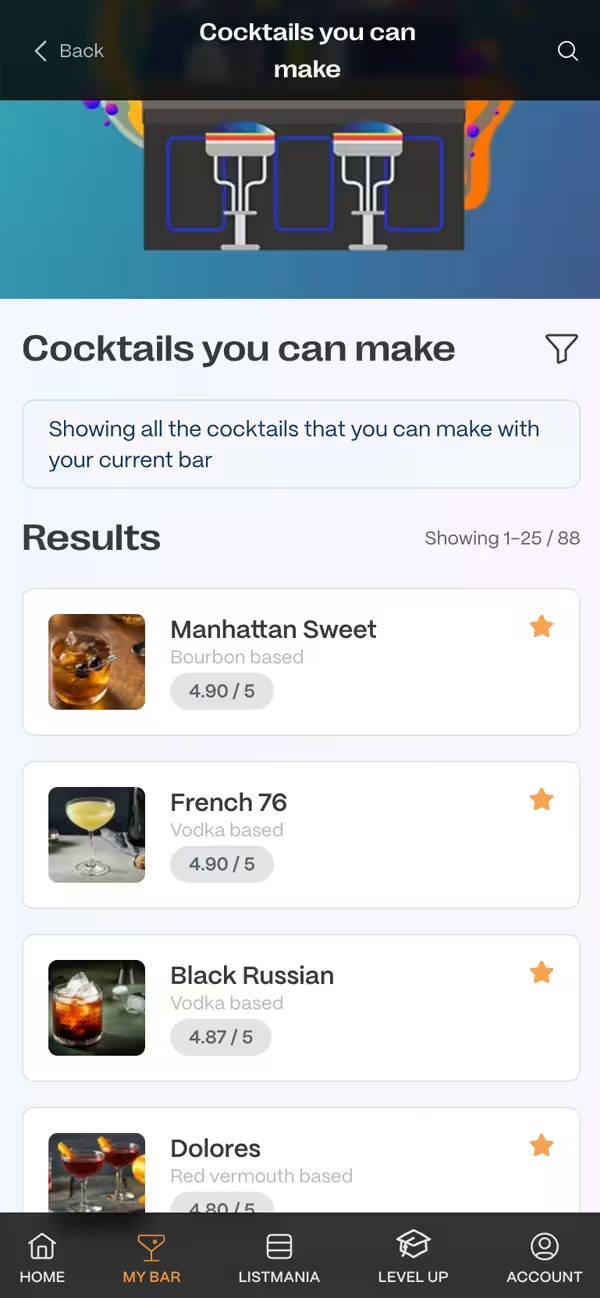The 1 best Gentian cocktails
Introduction
Unveil the Bitter Brilliance of Gentian
Gentian, a herb revered for its vibrant bitterness, has been a cornerstone in the world of mixology, infusing cocktails with its uniquely bold flavor.
Predominantly found in the roots of the Gentiana species, this bittering agent has been celebrated for centuries, not just for its medicinal properties but for its unparalleled ability to balance and deepen cocktail profiles. As we explore the top 10 cocktails enriched by Gentian, you'll discover how this potent ingredient transforms simple drinks into complex, aromatic masterpieces. From the refreshing aperitifs to the soul-warming digestifs, Gentian's versatility shines through, offering something for every palate. Its earthy, floral, and sometimes fruity undertones make it a favorite among bartenders seeking to create drinks that linger in memory long after the last sip.
This listicle navigates through the intricate world of Gentian-infused cocktails, offering insights into how this remarkable ingredient has shaped modern mixology.
Top 1 Gentian cocktails
-
· · · · · · White Negroni
Conclusion
More about Gentian
1. White Negroni
Imagined in the sun-dappled terraces of France, this beverage gracefully dances between tradition and innovation. By blending Lillet Blanc, a sophisticated French aperitif wine, with the clear, juniper-scented notes of dry gin, and then introducing the bitter complexity of Gentian, it finds a harmonious balance. This mix not only highlights Gentian's robust character but also elevates it through a marriage with the floral and subtly sweet profiles of its companions. The result is a drink that effortlessly transitions from a casual afternoon refreshment to the highlight of an elegant evening, embodying the spirit of modern mixology while paying homage to the timeless allure of its roots. Its place on this list is assured not only by its exquisite flavor profile but also by its standing as a celebrated variant within the cocktail community, admired for its ability to offer a unique take on bitterness, wrapped in a cloak of sophistication.
Ingredients
Method
-
- Begin by adding Lillet Blanc, Dry gin, and Gentian into a glass filled with ice, ensuring the ice reaches near the top for a chilled effect
-
- Gently stir the mixture for about 10-15 seconds, which helps to combine the ingredients thoroughly without over-diluting the drink
Conclusion
Selecting the top 10 cocktails that feature Gentian was no small feat, considering the extensive variety of drinks that employ this ingredient for its distinct bitterness and aromatic complexity.
These cocktails were chosen not just for their use of Gentian but for how they exemplify the ingredient's capability to elevate a beverage from good to unforgettable. Each drink stands out for its unique balance, creativity, and the way it harmonizes Gentian’s herbal notes with other ingredients, creating flavors that are both complex and accessible. Whether it's the refreshment of an aperitif or the deep, contemplative warmth of a digestif, our selection showcases the best that Gentian has to offer to the cocktail world. Behind every sip is a story of tradition, innovation, and the perpetual quest for the perfect blend of flavors.
It’s clear that Gentian's bitter charm is indispensable in crafting the finest cocktails, each a testament to the ingredient’s enduring appeal.
More info
Want to discover more?
- View all the cocktails that contain Gentian where you can filter and search the list.
- View the dedicated ingredient page for Gentian
More about Gentian
What is the history and origin of gentian as a cocktail ingredient?
Gentian root has a long history of use that stretches back to ancient times, primarily for medicinal purposes due to its digestive benefits. Its origin as a cocktail ingredient can be traced to the 19th century in Europe, particularly in France and Switzerland, where it was first used to make bitters and aperitifs. The root's intense bitterness proved to be an excellent counterpart to the sweet and herbal ingredients in cocktails, leading to its widespread acceptance in the world of mixology. Today, gentian-based liquors like Suze and Salers, alongside bitters made with gentian such as Angostura and Peychaud's, are staples in bars around the globe.
What can you use as a substitute for gentian in cocktails if it's not available?
If gentian is unavailable, the closest substitutes that can mimic its bitter profile are other amaro or bitter liqueurs. A liqueur like Campari or Aperol, although fruitier, can offer the bitterness required, especially in cocktails like the Negroni or Americano. Wormwood or cinchona bark can also be used as they share a similar bitter quality, but they should be used sparingly due to their potent flavors. These substitutes can help achieve a semblance of the complexity and bitterness that gentian provides.
How is gentian typically served in cocktails?
Gentian is mainly featured in cocktails in two forms: as a key ingredient in bitter liqueurs or as part of aromatic bitters. Gentian-based liqueurs, like Suze and Salers, are often used neat, on the rocks, or as part of a cocktail mixture, providing a distinctive bitterness that balances sweeter ingredients. For instance, in a classic Negroni or an Americano, gentian-infused bitters or liqueurs add depth and complexity. The way gentian is served within cocktails is usually aimed at highlighting its unique bitter profile while complementing the drink's overall flavor palette.
What makes gentian a unique ingredient in cocktails compared to other bitters?
Gentian is unique due to its intensely bitter flavor profile, which is among the most bitter tastes found in nature. Unlike other bitters that may have a more balanced profile with herbal, floral, or citrus notes, gentian's primary characteristic is its profound bitterness. This potent bitterness makes it an essential ingredient for creating depth and contrast in cocktails, particularly in balancing sweetness and enhancing the overall complexity of a drink. Its distinctiveness lies not just in its flavor but also in its ability to stimulate the appetite, making it an ideal choice for aperitifs.
Are there non-alcoholic ways to enjoy the flavor profile of gentian?
Yes, it's possible to enjoy the unique bitter flavor of gentian without alcohol. One way is by incorporating gentian root into homemade non-alcoholic bitters, which can be added to mocktails or non-alcoholic aperitifs. Another option is to look for non-alcoholic spirits or aperitifs that are made with gentian or other bittering agents; these products are increasingly popular and widely available. These non-alcoholic alternatives allow for the creation of drinks that have the complexity and bitterness of traditional cocktails, but without the alcohol content, making them suitable for a wider range of occasions and preferences.




